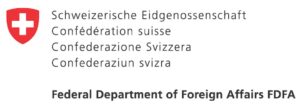The African Union (AU) and Regional Economic Communities (REC) have become pivotal peacemakers in the two decades since they began the construction of a joint African Peace and Security Architecture (APSA) with the objective to provide “African solutions to African problems.” The African organisations have developed normative policy frameworks and organisational structures for mediation and preventive diplomacy. The peacemaking institutions, which were developed with the assistance of international development partners, reflect the long-standing peacemaking experience, practices and principles of the African organisations, as well as international norms, technical standards and peacebuilding paradigms. Whereas the African organisations and Western states share a catalogue of common values, in peacemaking interventions, their priorities and approaches often diverge.
This policy brief explores how African organisations envision peacemaking, how the African solutions differ from Western approaches, and to what extent the approaches are compatible. To this end, it reviews the policy frameworks and structures for peacemaking of the AU, Intergovernmental Authority on Development (IGAD) and Southern African Development Community (SADC). The study forms part of PeaceRep’s Global Transitions project, which examines the role of non-Western state actors and intergovernmental organisations in the management of conflicts and peace processes worldwide.






